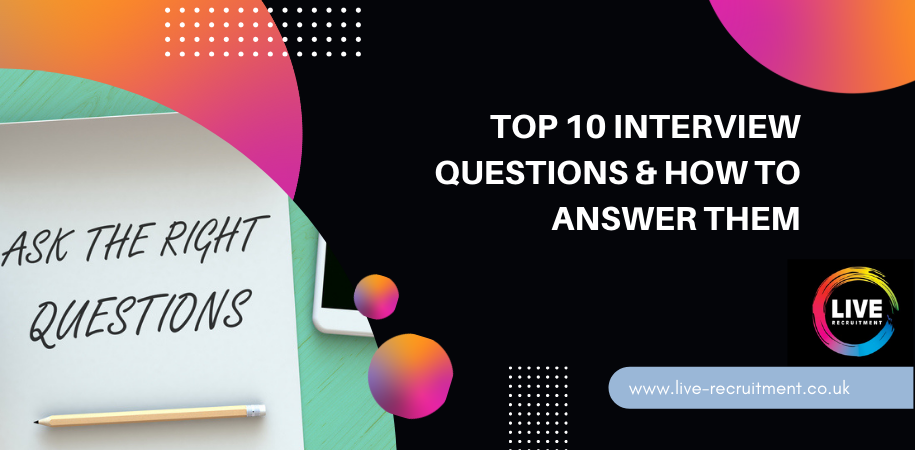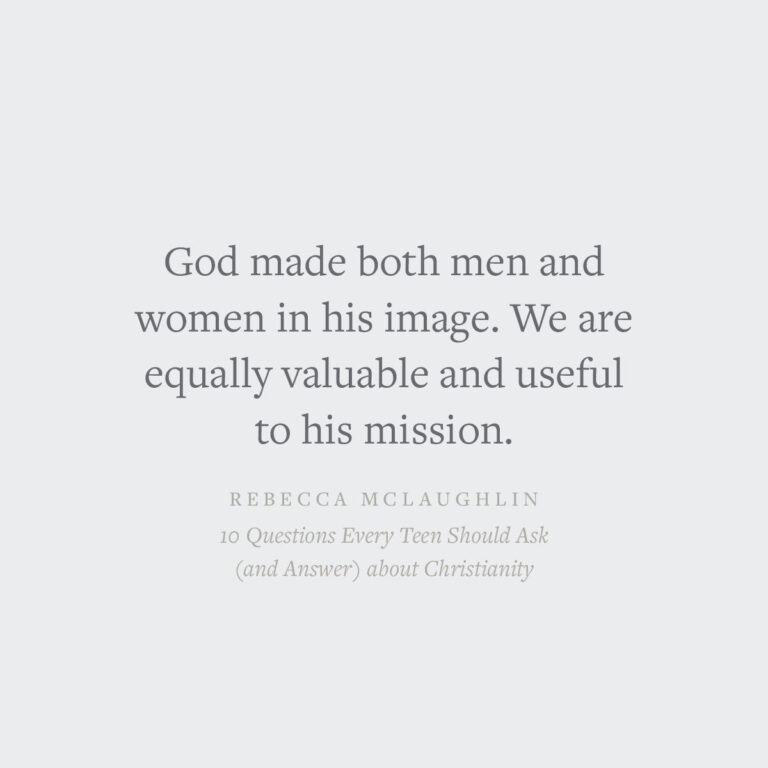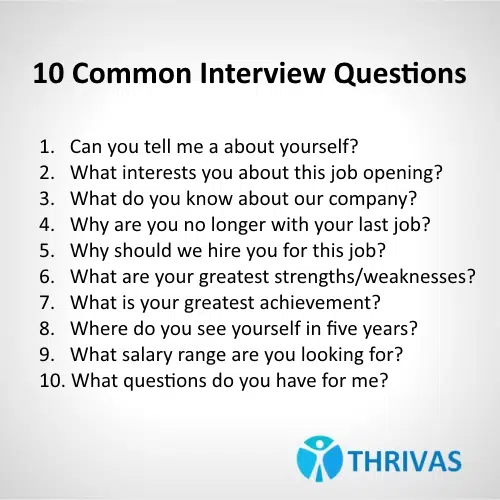
Top 10 Interview Questions and Answers
Interviews can be tricky. But, being prepared helps a lot. Knowing what questions to expect boosts your chances of landing a job. This guide shows you how.
Tell Me About Yourself

Source: thrivas.com
This is a common starter. It's your chance to briefly describe your skills and background. Keep it short and sweet. Focus on what makes you good for this particular job.
- Key: Highlight your best skills that fit the job.
- Tip: Mention numbers and facts – like years of experience or projects.
Why Are You Interested in This Position?
This question checks if you've really looked into the company and job. Show you understand what the position needs. You must explain clearly why you're the right person.
- Key: Company, team, and the specific job interests must align with your skillsets.
- Tip: Mention something special you know about the company or job.
What Are Your Strengths?
You get to tell about your great qualities. Think about qualities that matter for the job you want. Tell a short, clear story to show these qualities.
- Key: Choose 2-3 most relevant strengths.
- Tip: Be honest about what you're good at, give solid examples.
What Are Your Weaknesses?
This one's about being honest and positive. Everyone has a weak spot. Briefly describe one. Then, explain what you are doing to improve.
- Key: Choose a minor area to improve, and tell how you're better.
- Tip: Frame your weakness as an area for improvement and show that you're learning or improving this area.
Why Should We Hire You?
Now it's your chance to show how good you are for this job. List your top skills and show how they can benefit this company or team. Show how your work adds value.
- Key: Showcase what sets you apart. Use numbers where you can to demonstrate success.
- Tip: Explain why your skills are essential to filling the job opening's need.
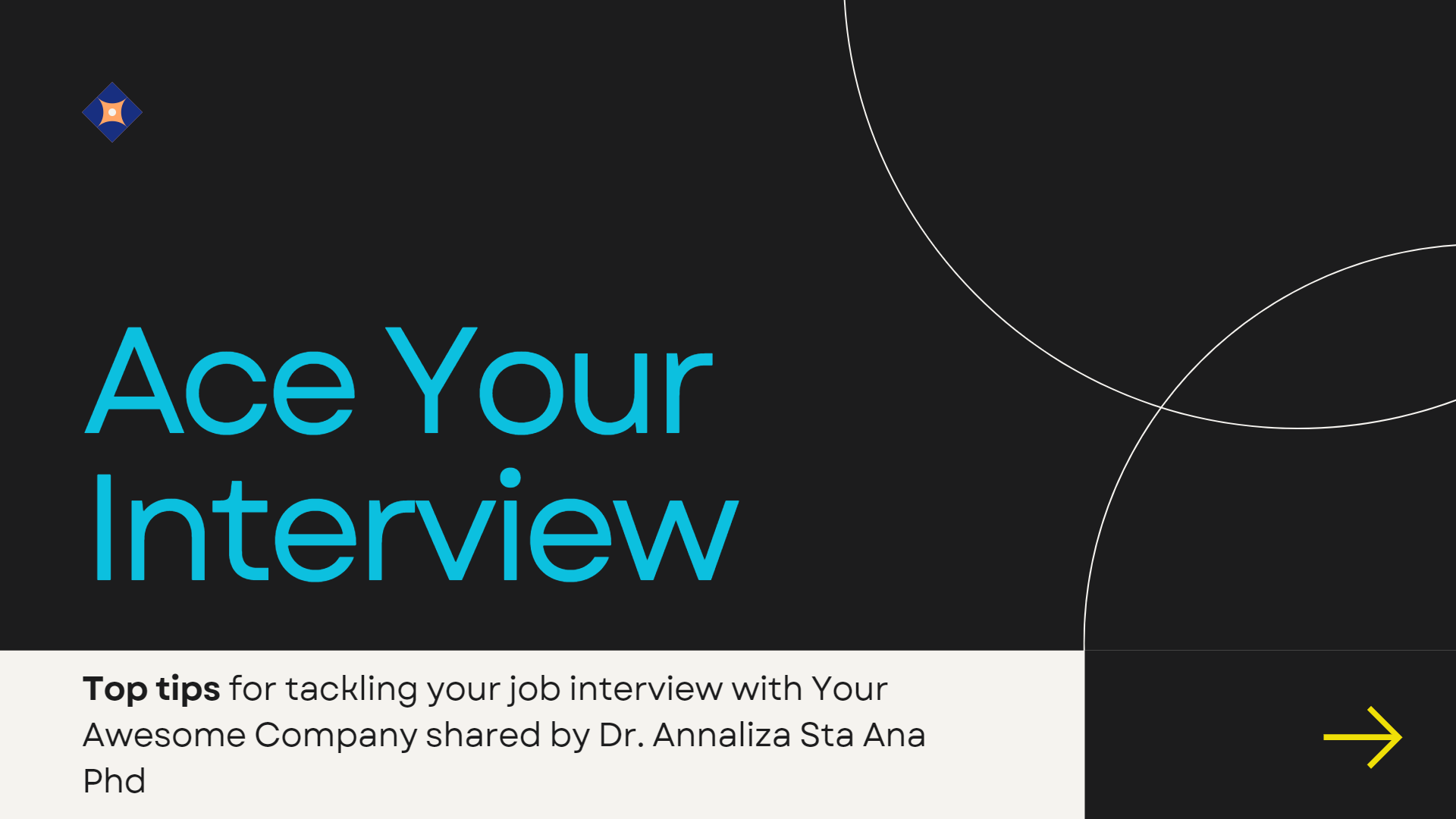
Source: aquinascollege.ca
What Are Your Salary Expectations?
Talking about salary is tricky but necessary. Find the average for a similar role in your area. This helps with fair negotiation.
- Key: Know the job market's average.
- Tip: Present a reasonable range, based on your skill set. Be flexible!
What Are Your Career Goals?
Think about where you see yourself in the future. Connect your career goals to this role and company. Let them see you have plans and are dedicated.
- Key: Show you have a path.
- Tip: Briefly outline how the company's vision is aligned with your career goals.
What Is Your Work Style?
Interviews reveal your work style. Be clear about how you work best — independently, or as part of a team. Mention your usual work rhythm. Highlighting your teamwork skills is a plus.
- Key: Explain how you approach projects, deliver tasks, and how well you adapt in the workplace.
- Tip: Discuss what working styles suit this job the most.
Do You Have Any Questions for Me?
Asking insightful questions shows you're serious about the role. Asking about challenges, growth potential, and the future shows your genuine interest.
- Key: Show your deep curiosity in this company, not just for the job itself.
- Tip: Do brief background research first. Ask relevant questions that get past simple 'how-to'.
Are There Any Final Questions We Can Answer for You?
Use this chance for a final query. You can follow up with anything that hasn't been clarified already, anything interesting from previous questions.
- Key: Your questions show genuine interest.
- Tip: Focus on specifics relevant to this particular company, like team sizes or project scopes. Get some deeper, tangible details about this opportunity.
7 Ways to Ace Your Next Interview
Interviews aren't just about answering questions; they're about showing your worth. These seven steps help you stand out.
1. Research the Company and Role
Knowing the company helps you connect with it. Find out their goals and what's important to them. Match your skills to the job's needs.
- Key: Show genuine interest and that you've researched the position and company.
2. Practice Your Answers
Rehearsing interview answers boosts your confidence. Practice out loud, focusing on your best strengths and important experience details.
- Key: Preparation makes a huge difference; practice answering possible questions, showing that you’ve carefully thought things out. Try answering different ways to see what sounds best.
3. Dress Professionally
Your outfit matters; it shows how serious you are. Dress in clothes that show that you respect the process. Professional clothing suggests dedication.
- Key: Respectful dressing matters – show the company respect for the chance to be interviewed.
4. Arrive on Time
Arriving late sends a bad message. Aim to be early. Show that you're respectful and you prioritize being ready for the interview.
- Key: Time management is a significant trait; arriving a few minutes early suggests that you value time and attention, showing courtesy and professionalism.
5. Be Enthusiastic and Engaging
Your enthusiasm shows how interested you are. Make a good first impression. Your energy will shine.
- Key: Enthusiasm is contagious; showing positive and engaged behavior from the start gives an awesome first impression; you stand out from other candidates, who may not show similar initiative and excitement for the job.
6. Ask Thoughtful Questions
Asking good questions proves that you are thinking about the position and company. You show that you truly want the job and have some important ideas and things to learn about the work and process involved.
- Key: Don't ask common questions that anyone would ask, delve deeper, finding out interesting things, details on the culture and company values.
7. Follow Up After the Interview
Following up shows that you truly want the role. This reinforces the effort to follow through, suggesting persistence and passion for the opportunity.
- Key: Sending a quick note is great, but shows continued genuine interest in this particular company.
By mastering these key strategies, your confidence shines through. A little practice brings results, giving you that essential edge for any job you are aiming to secure.
5 Reasons Why Interview Preparation Matters
Getting ready for an interview is important for a lot of reasons. It helps you feel better, do better, and have a higher chance of success.
1. Increased Confidence

Source: collegeforme.org
Preparing builds your confidence. Knowing you're ready helps you relax during the interview. Feeling prepared helps you believe in your abilities.
2. Improved Performance
When you practice, you improve. You're better able to answer questions and explain your skills during the interview. Being prepared can dramatically boost how you do.
3. Reduced Anxiety
Preparation takes away a lot of worry. Knowing you have practiced answers makes interviews less scary. Preparing ahead reduces stress.
4. Better Understanding of the Role
By studying the job description, you gain insights into the specific needs and responsibilities of the role. Preparation provides a better understanding of expectations, helping you demonstrate that you match requirements and expectations.
5. Higher Chance of Success
Preparation significantly improves your chances of success. When you understand the requirements and feel ready, interviews can result in getting the job. Being ready increases chances that you’ll stand out from other candidates and receive a job offer.
Interview preparation isn't just about knowing answers; it's about being ready in your mind. When you prepare thoroughly, it's almost as though you increase your success probability – this creates an enormous boost in confidence to truly stand out during any job interview, which shows that you care and understand your responsibilities for any opportunity available. The interview becomes far less frightening when preparation takes center stage, boosting both self-belief and interview performance to great results. This improved self-perception often gives candidates an advantage against others with less meticulous preparation, resulting in enhanced outcomes and probabilities when facing a company or selection committee. By being prepared, you show not only understanding of the position, but also a level of responsibility for managing your potential in that job role.
Understanding Common Interviewer Questions

Source: imdiversity.com
Interview questions help companies see if you're a good fit. They check your skills, experience, and personality.
Behavioral Questions
These questions ask about your past actions. They want to see how you reacted in similar situations. Think about your responses in the past; prepare good stories of past experiences to tell the interviewers.
- Key: How did you handle previous situations? These show how you act in the workplace.
Technical Questions
These are about the job's specific skills. They test your knowledge. Study what you should know from the role description carefully. Preparation gives you great success here.
- Key: Knowledge about particular tools and techniques relevant to the job. Practice and research what the company usually uses for a job like yours; knowledge of industry specifics greatly helps too.

Source: novoresume.com
Situational Questions
These questions ask about how you would respond in hypothetical scenarios. These test how well you think on your feet. Interview practice with a friend, family member, or study group makes this kind of questions much easier.
- Key: Decision-making and problem-solving. Practice visualizing such situations before an interview to be better prepared.
Experience-Based Questions
These focus on your experiences in the field. Think about success, failures, challenges. What you learned through experiences you had. Try recalling details and what steps you took. Practice retelling situations, details and steps will shine during interview discussions.
- Key: The things you did. The outcome or results from work you did, especially successful efforts, showing problem-solving skills in action, that demonstrate qualities companies value in you for a potential job role.
Personality-Based Questions
These explore your character. They check how you work with others and how well you adapt to situations, show your personal drive. Think carefully on what personal traits and what situations are often associated with good workplace interactions and responses.
- Key: Your attitude and traits. The kind of personality you show. These tests reveal important traits for a potential job opening.
Tricky Questions
Some questions seem strange. Don't get stuck! Try to stay calm, think, and respond calmly. Explain in a detailed way what approach or steps you'd take to get to an appropriate outcome from your thought processes.
- Key: Dealing with discomfort. Being composed will shine. Your calmness suggests a great response even when not knowing a precise answer to complex or challenging situations
Culture Fit Questions
These examine how well you might fit into the company's environment. They test to see if you have matching company values. Preparation helps ensure you are aware of these factors. Match your own qualities and beliefs with those of the company for better fit.
- Key: Alignment of beliefs and values. How comfortable you feel working there based on a thorough interview study. Company’s specific value expectations.
Understanding the many questions interviewers use is key to making a solid impression during a job interview. By addressing diverse types of interview questions, you give yourself a high probability of showing interviewers your worth.
Crafting Compelling Interview Answers
Good interview answers are key to a great impression. Use these tips to create strong responses.
Use the STAR Method
The STAR method helps you structure your answers. It's a useful way to clearly show your past performance. Remember to have solid examples ready that illustrate successes and describe step-by-step processes.
- Key: Situation, Task, Action, Result. It’s a systematic framework for describing your accomplishments and capabilities.
Be Specific and Concise
Use clear, detailed language when answering questions. Get straight to the point; avoid vague or long explanations. Concise explanations impress interviewers because it saves them time. Show them quickly what skills you have.
- Key: Precision and clarity are crucial to showcasing what you do, your value for the company and position, and also your comprehension.
Highlight Your Skills and Experience
Connect your past experiences with the job requirements. Emphasize how your skills match the company's needs; tell interviewers which abilities and experience you already possess, relevant to this role or that you can develop over time.
- Key: Showing strong connections between your experience and job description makes you an obvious fit for the job and is key for demonstrating your strong understanding.
Showcase Your Personality
Show your true self; enthusiasm is vital! Make yourself come across as personable and confident, not robotic! Interviewers need to see your excitement!
- Key: Personality is important in the workplace. It showcases your individual abilities for interacting in your role and for company teamwork.
Demonstrate Enthusiasm and Interest
Show genuine excitement for the job! Show you’re truly interested and want this job, with passionate enthusiasm, with excitement; let that come across to the interview board or manager.
- Key: Genuine interest shines; this important factor suggests passion and excitement. Let that drive enthusiasm during interview discussions!
Quantify Your Achievements When Possible
Use numbers to demonstrate the value of your work. Showing successful efforts (even if small!) will truly impress interviewers with what you can add to a role or business.
- Key: Numerical proof demonstrates measurable impact. It makes answers clearer; using numbers shows how successful you were in similar projects, showing your impact on others and companies, even at an earlier time or position.
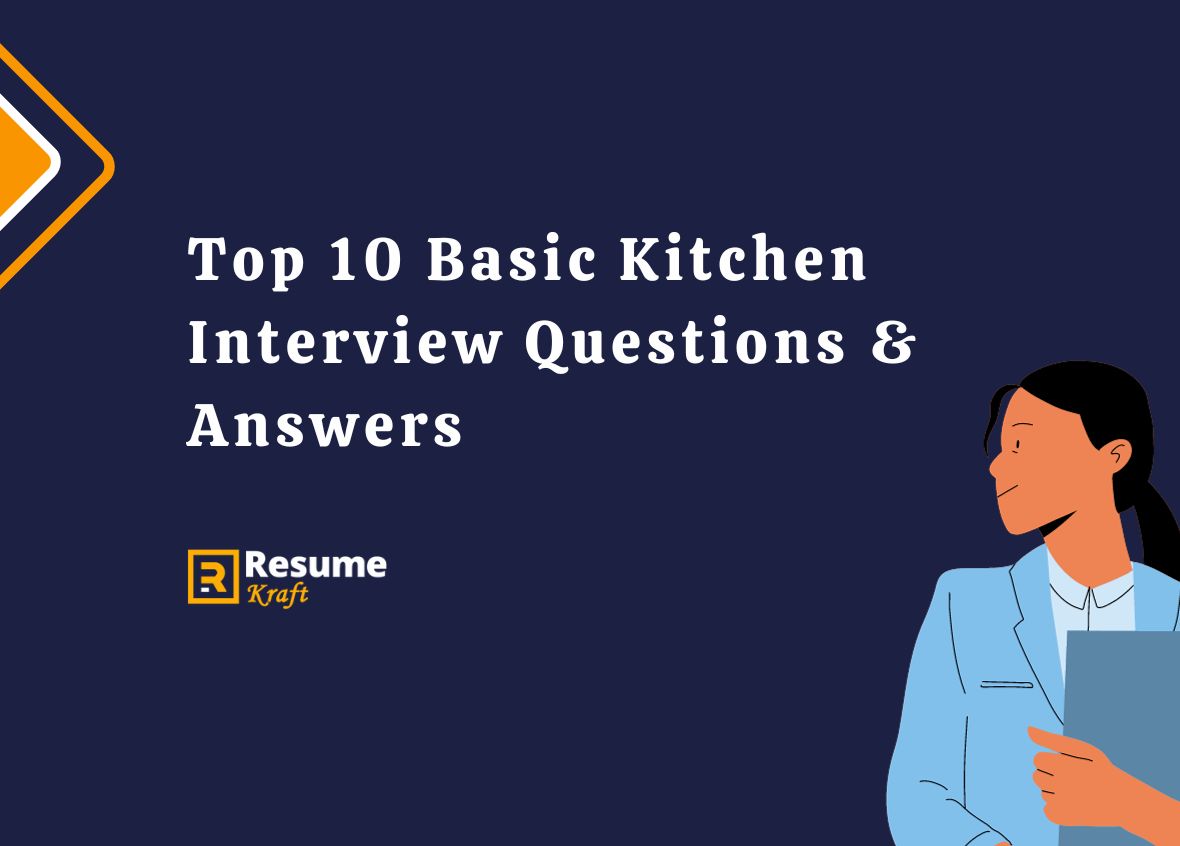
Source: resumekraft.com
Practice with a Friend
Practicing out loud is super helpful! Ask a friend or family member to role-play as an interviewer; a trial interview beforehand makes sure that your voice clarity and answer speed can impress!
- Key: Getting familiar with interview discussions from someone practicing your voice, or giving helpful tips improves your natural and effective communication techniques when interacting.
Following these pointers builds confidence, ensures impressive clarity, and strengthens how clearly you present your answers, abilities, or skills; that's also important! Interviewers appreciate clear explanations and see it as a high mark, showing you clearly have important and well-developed skills and are a person for a team role.
Source: volcanic.cloud
Key Takeaways and Next Steps
After the interview, reflecting on your performance and following up is crucial. These steps help you make a lasting impression and increase chances of landing the job.
Review and Reflect on Your Performance
Think back on how you did. Note what went well and what could be better. Look at your answers, and identify strong points, and any areas that may need a bit more work. Understanding your performance allows you to enhance future interview techniques.
Send a Thank-You Note
A thank-you note is essential. It shows respect and gratitude for the opportunity. A short note confirms your sincere interest and builds positive relations with the company, showing genuine interest, and a great attitude towards them as possible future colleagues or employers.
- Key: Express sincere gratitude for the opportunity. Your approach during a thank-you message or note is crucial.
Follow Up on the Hiring Process
After the interview, inquire about the next steps. Asking about timelines creates a good image and strengthens your enthusiasm and proactive approach.
- Key: Showing genuine interest and that you're dedicated builds stronger interest for recruiters and potential new coworkers. Showing you’re interested shows care and that you don’t simply move on from any opportunity easily without a caring and proactive attitude.

Source: slideplayer.com
Continue Practicing and Refining Your Skills
Keep refining interview skills by studying questions, answers, or even video recordings of yourself. The goal is getting even better; this creates positive growth. Practicing reinforces confidence.
Stay Positive and Persistent in Your Job Search
Your attitude influences the outcome. Stay hopeful and continue actively applying for jobs; these approaches positively affect job searching prospects; be positive!
- Key: Patience and perseverance are key components of an efficient and active job search. Success in job seeking requires optimism and determination to persevere through difficult circumstances while showing ongoing passion and eagerness towards new possibilities; perseverance and passion help a great deal to truly land a dream job or suitable opportunity.
Review, follow up, continue practice, and keep a positive mindset to enhance your chance for success. A thoughtful follow-up strengthens your professionalism, which often significantly contributes to the selection or approval stages for potential job offers. Maintaining positivity and persistence is crucial.
